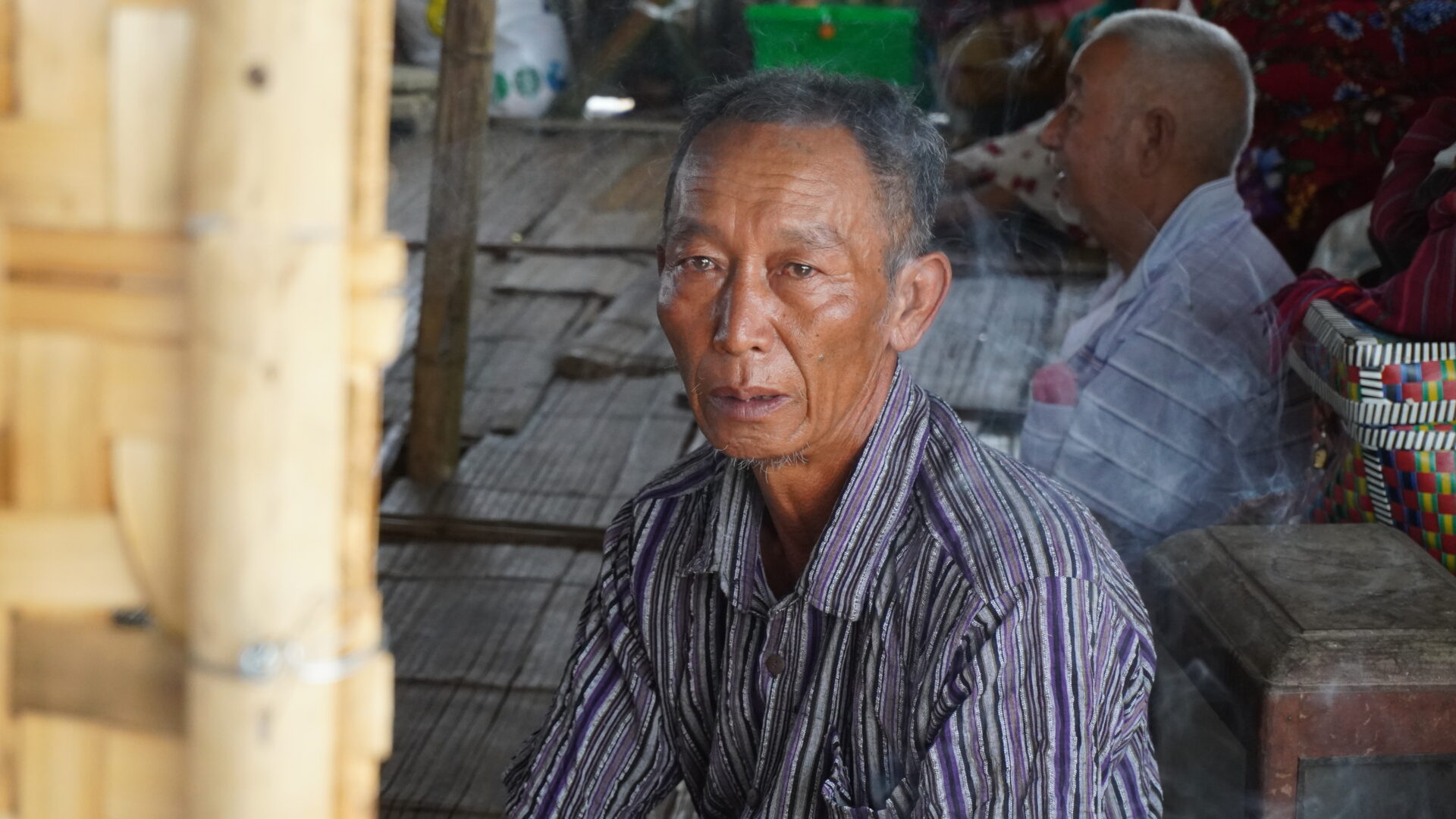Despite having access to clean water, they lack basic sanitation and hygiene facilities, which adds another layer of hardship to their daily lives.
Living in fear and grief
The emotional toll is immense. U San Win’s voice is heavy when he describes how the village he once called home now feels unfamiliar.
“I can barely go up the stairs on my own. I feel unsafe. I’m always worried about another earthquake. I feel sad and don’t want to walk around my village because I can’t bear to see the heartbreaking scenes. It will never be the same.”
His livelihood has also been upended. A farmer by trade, he has not been able to return to his work. The support systems that once existed – neighbours helping neighbours – have vanished under the weight of collective loss.
“Before, we could borrow from each other, share food. Now, no one has anything left to give. We are all suffering.”
A hopeful plea: “If we have a place to live, we can work”
Though weary, U San Win still holds on to a glimmer of hope. “If we have a place to live, we can work for our daily food,” he says. “I just wish everything can be settled soon.”
He is deeply grateful for the food and water provided by charity groups, but says they also urgently need waterproof sheets to protect them from natural elements, and support to rebuild their homes and lives.
U San Win’s story is just one among thousands in Myanmar. Yet it is a powerful reminder that in the face of unimaginable loss, people continue to hold on – to family, to dignity, and to the hope of rebuilding.
For communities like Kay Lar Village, recovery will take time, support, and solidarity. But with the right help, people like U San Win can begin to rebuild – not just their homes, but their futures.


